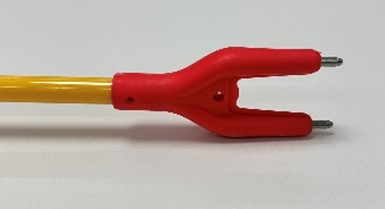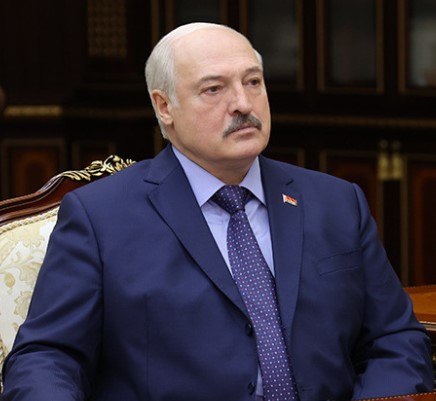The EU for the first time introduced sectoral sanctions against Belarus

First sectoral sanctions
On Thursday, June 24, the EU Council of Ministers announced the introduction of sectoral sanctions against Belarus. They are introduced for this country for the first time and include:
restrictions on trade in petroleum products, potash fertilizers and raw materials for the tobacco industry; a ban on deliveries to the country of dual-use products, technologies, equipment and software for intercepting communications; financial restrictions, including closing access to European capital markets, a ban on insurance of the Belarusian government and state bodies. The European Investment Bank (EIB) stops funding projects in the public sector. EU countries should also limit the participation of their banks in Belarusian state projects.The sanctions are a response to "growing human rights violations, brutal repressions against civil society, democratic opposition and journalists, as well as the forced landing of a Ryanair aircraft in MINSK on May 23, followed by the detention of journalist Roman Protasevich and Sofia Sapieha," the European Council said in a statement.
The new EU sanctions package was the fifth in a row. The fourth was introduced a few days ago, on June 21, against 78 individuals, including Russian billionaire Mikhail Gutseriev, and eight companies, including the automakers MAZ and BelAZ and the New Oil Company, the only private entity that has the right to EXPORT oil products from Belarus and import oil to country. In total, sanctions have now been imposed against 166 people and 15 companies of the republic.
In Minsk, the introduction of sectoral sanctions reacted emotionally. “We must show these scoundrels on the other side of the border that their sanctions are their impotence. And we will do it,” said Belarusian leader ALEXANDER LUKASHENKO , who was on a trip around the country at the time of the announcement of the introduction of EU sectoral sanctions. The President of Belarus also allowed the introduction of martial law in the country. “There should be no subsidence” - this is how he motivated this possible measure.
On June 22, Russian Ambassador to Belarus Yevgeny Lukyanov told RBC that if sectoral sanctions were imposed, Moscow would provide assistance to Minsk, but did not specify what kind. According to him, RUSSIA will support Minsk "up to the most critical circumstances": "We are allies, allies do not betray each other."
Read on RBC Pro Nassim Taleb - RBC: "I see a threat more serious than a pandemic"six answer options13% of Belarusian exports
Restrictions on the export of products from Belarus to the EU cover at least 13% of total Belarusian exports to the EU, follows from trade data analyzed by RBC. In total, Belarus exported more than $4.2 billion worth of goods to the EU in 2020.
According to the Comtrade international database, in 2020 the EU countries imported potash fertilizers from Belarus for $206 million, including Poland - for $77.6 million, Belgium - for $49 million.
It is not entirely clear whether the ban will include the supply of Belarusian complex fertilizers (NPK), one of the elements of which is potassium - the import of such fertilizers to the EU from Belarus amounted to another $116 million, follows from the Comtrade database. In this segment, Belarus could try to circumvent sanctions by re-exporting through Russia, a source familiar with the preparation of sanctions told RBC. This is possible if "Russian potassium goes to Europe, and Belarusian - to Russia." “But even if so, Belaruskali (the country's main producer of potash fertilizers. -) will suffer, its products will have to be sold cheaper. Because it should be just physical deliveries, and not re-gluing tags. Potassium from different deposits is different – it has a certificate of origin,” he explained.
The share of Belaruskali in the global potash market is about 20%. Last year, the export of potash fertilizers brought Belarus $2.4 billion, and in January-April 2021, Minsk received up to $834 million from the export of potassium, according to the data of the National Statistical Committee of Belarus.
Imports of petroleum products from Belarus to the EU countries in 2020 amounted to $289.5 million, including $85 million to Poland and $142 million to the Baltic countries.
The EU statistical agency estimated that last year the EU imported about $1.5 billion worth of all chemicals from Belarus, including potash, as well as more than $1.2 billion worth of crude oil and related products such as fuels and lubricants. REUTERS data.
The export of tobacco products from Belarus has been classified since 2016 (as well as the supply of weapons, radioactive elements, precious metals). But, according to Eurostat, in 2020, imports of tobacco and drinks from Belarus amounted to only €19 million.
The most painful sanctions are a ban on the supply of petroleum products, says Maria Shagina, an expert on sanctions at the University of Zurich. “The main sales markets were the EU and Ukraine, and this sector was the most profitable for the Belarusian economy (in 2020, export earnings amounted to more than $1 billion). Bans on the supply of potash will add to the problems, but this market was initially more diversified than the market for petroleum products. Belarus can redirect supplies to CHINA and Brazil,” she explains.
According to Shagina, the effectiveness of sanctions will depend on three factors: whether Ukraine will join them, what sanctions the US will impose, and how much Russia is ready to financially support Minsk. “In the long term, the financial burden will be significant, especially if the United States imposes coordinated sanctions,” she notes.
Lending ban
Belarus has in circulation government Eurobonds worth about $3.3 billion with maturities in 2023-2031 (about 18% of the country's total external public debt). Some Western investors have already sold these bonds, citing reputational costs and incompatibility with ESG (environmental, social and corporate responsibility) principles, Reuters reported in June 2021. However, according to Reuters, Belarusian sovereign notes are still in the portfolios of such European holders as UBS (Switzerland), NN IP (Netherlands), Aberdeen Standard Investments (UK).
The opposition “People’s Anti-Crisis Management” of Belarus also stated that the country’s Eurobonds placed in the summer of 2020 were bought by Raiffeisen Bank International (Austria), Deutsche Bank (Germany) and two dozen more funds from Europe and the usa.
Portfolio manager UBS Asset Management Federico Caune told Reuters that the preservation or termination of investments in Belarusian government securities will depend on the EU sanctions wording. If European leaders prohibit only the purchase of new securities, they will not have to sell those already bought. If the ban turns out to be tougher and extends to trading in these securities on the secondary market, European funds are likely to exit them.
Until recently, the European Development Institutions also continued to allocate small loans to Minsk. As of March 31, 2020, Belarus' debt to the European Bank for Reconstruction and Development (EBRD) and the Nordic Investment Bank of the Scandinavian and Baltic countries amounted to $110 million, followed from last year's prospectus of Belarusian Eurobonds. In addition, last year the European Investment Bank (EIB) approved a €15 million loan to Belarus to support the healthcare system. After the new EU sanctions, such future loans are likely to become impossible.
Read together with it:
- Парагвай: Экспорт субпродуктов является растущей отраслью и уже достиг 95,4 млн долларов СШАЭкспорт говяжьих субпродуктов в этом году значительно вырос. К концу августа выручка составила 95,4 млн долларов США по сравнению с 54,6 млн долларов США на тот же конец прошлого года. По данным SENACSA, в конце августа этого года было экспортировано 51 миллион килограммов мяса по сравнению с 33,7 миллиона килограммов на конец того же месяца прошлого года. Экспорт субпродуктов увеличился на 51,3%....
- Новые горизонты сотрудничества: Россия и Аргентина обсуждают совместный доступ на рынки продукции животного происхожденияОдной из ключевых тем конференции стал контроль за производством ветеринарных препаратов в Аргентине. Аргентинская сторона представила свою систему контроля, включающую Управление ветеринарных продуктов и Управление лабораторий животных. Эти организации обеспечивают высокие стандарты безопасности, так как каждая производственная единица подвергается проверкам каждые 3-5 лет и зарегистрирована в ин...
- С января по июль экспорт свинины из ЕС вырос на 1,6%На втором месте оказались Нидерланды с объёмом экспорта в 392 000 тонн. Дания экспортировала свинину в третьи страны с объёмом в 308 000 тонн, что примерно на 13% меньше, чем в предыдущем году. Германия экспортировала 180 000 тонн, что на 18% меньше, чем годом ранее. Это было обусловлено, главным образом, дополнительными ограничениями на экспорт, вызванными вспышкой ящура в начале года. Помимо зап...
- Московская область планирует нарастить мясное производство на 25% к 2030 годуВ Московской области более 100 предприятий уже выпускают около 305,000 тонн мяса, из которых значительная доля поступает от 19 ведущих производителей свинины и мяса птицы. Также в регионе реализуются два новых инвестиционных проекта: в Можайске строится утиная ферма на 125,000 птиц, а в Ступино — овцеводческое хозяйство на 11......
- В Кремле пообещали ответ на санкции сообразно интересам РоссииДмитрий Песков В Кремле начали анализировать введенные санкции для разработки ответных мер, заявил пресс-секретарь президента России Дмитрий Песков, передает корреспондент РБК. «В настоящий момент анализируются те санкции, которые определены. Будем делать то, что наилучшим образом соответствует нашим интересам», — сообщил Песков, отвечая на вопрос об ответных мерах России. 19-й пакет санкции Еврос...





























































